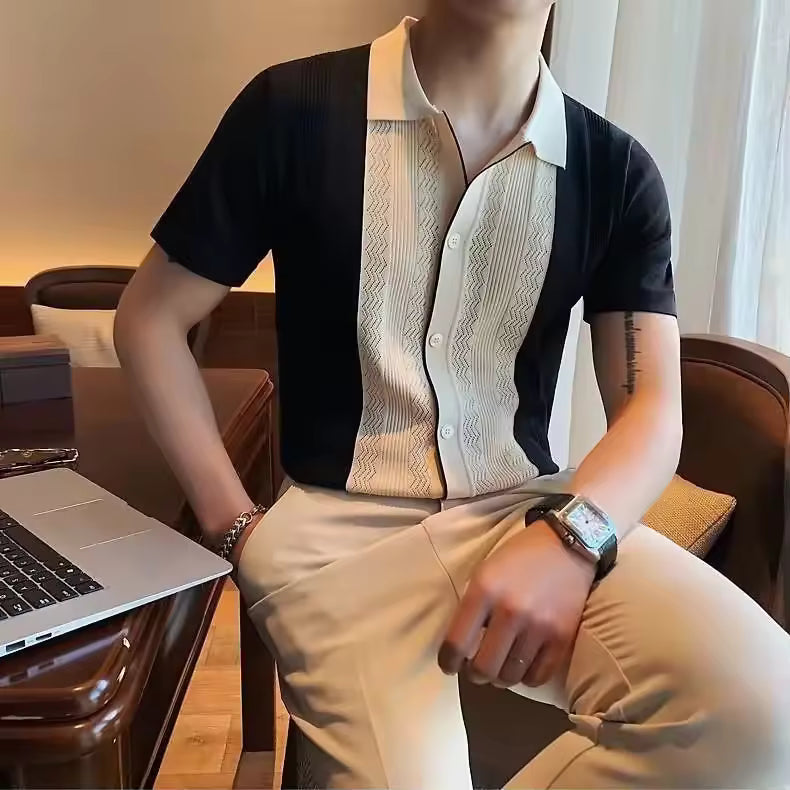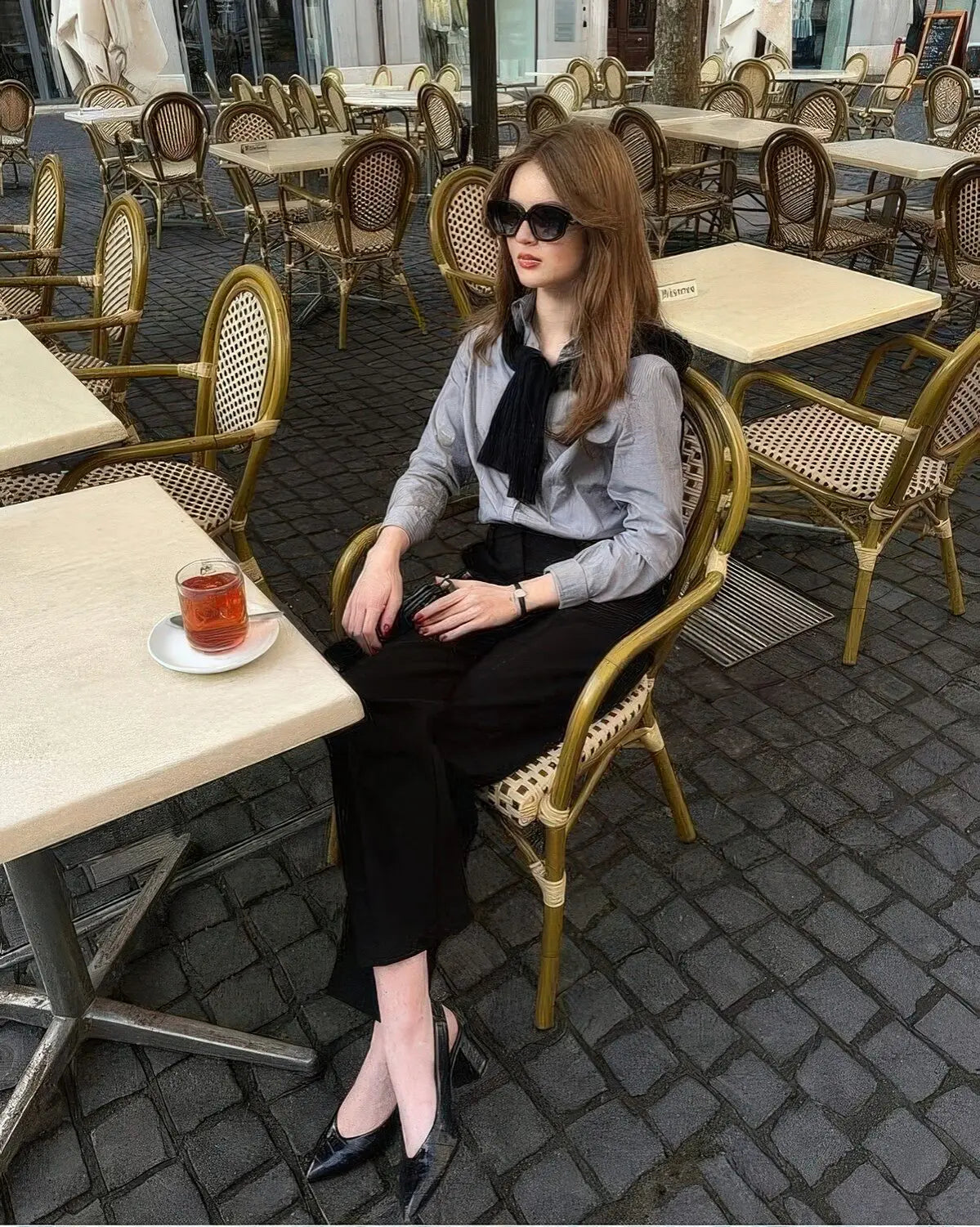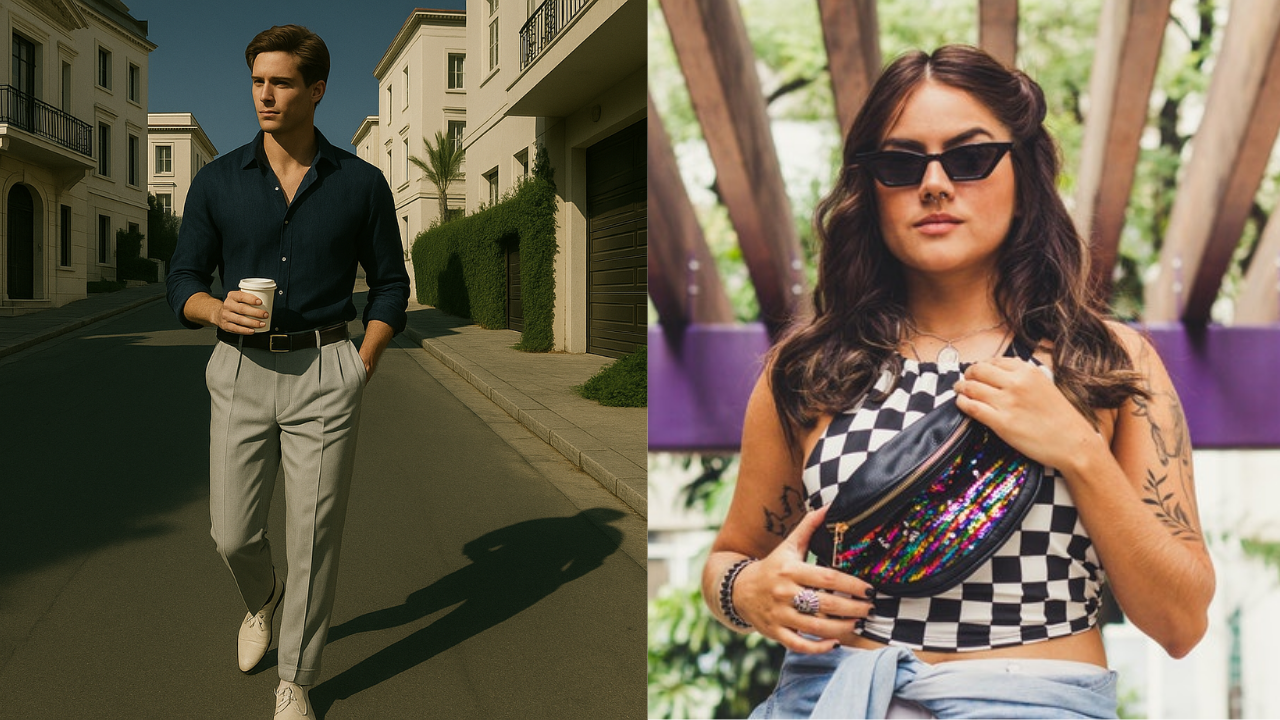
What Style Is Considered Old Money
A 2025 Deep‑Dive Into the Quiet‑Luxury Look Everyone Calls “Old Money Style”
Old money style has captured fashion feeds from TikTok to Vogue. Yet many posts reduce it to “neutral colors and pearls.” Real old money style runs deeper. It’s a disciplined approach to dressing (and behaving) that tilts toward quality, restraint, and longevity. This 1 400‑word guide defines what truly qualifies as old money style, explains why the look still signals status in 2025, and shows how to build a wardrobe that passes the quiet‑luxury test—no trust fund required.
1. Core Philosophy: Quiet Wealth Over Loud Logos
Old‑money families learned early that the best way to protect wealth is to keep it off flashy billboards. Their clothes follow suit:
-
Quality > Quantity – Fewer pieces, better fabric, impeccable finishing.
-
Timeless > Trending – Navy blazers beat neon micro‑trends every time.
-
Maintenance > Replacement – Repair shoes, re‑press trousers, rotate knits.
Fashion analysts at The Business of Fashion note that this “logo‑free luxury” has staying power because discreet garments outlive hype cycles (https://www.businessoffashion.com/briefings/luxury/why-logo-free-luxury-is-here-to-stay/). That perspective anchors authentic old money style.
2. A Restrained yet Rich Color Palette
Old money style avoids shouty shades. Instead it leans on hues that mix effortlessly and age gracefully:
|
Primary Neutrals |
Complement Neutrals |
Heritage Accents |
|
Navy |
Stone |
Burgundy |
|
Charcoal |
Cream |
Forest green |
|
Camel |
Olive |
Rust red |
|
Soft white |
Chocolate |
Deep mustard |
Stick to two neutrals plus one heritage accent per outfit. The combination projects unstudied elegance—the essence of old money style.
3. Fabrics That Whisper Luxury
True quiet luxury is literally quiet: no swooshing synthetics, no plastic gleam. Old money style favors tactile, breathable, and repairable textiles:
-
Long‑staple cotton Oxford or poplin – crisp shirts that resist pilling.
-
Worsted or flannel wool – trousers and jackets with flawless drape.
-
Cashmere & fine merino – lightweight warmth without bulk.
-
Milled tweed & camel hair – heirloom coats that shrug off decades.
-
Full‑grain leather & suede – shoes and belts that form a rich patina.
Synthetic blends appear only where function demands (think waterproof shells), never as cost‑cutting swaps.
4. Fit: The Silent Status Signal
Nothing kills old money style faster than sloppy shoulders or puddling hems. Invest in tailoring:
|
Garment |
Must‑Hit Fit Points |
|
Shirt |
Shoulder seam lines up with bone edge; no chest strain |
|
Trousers |
Waist snug with two‑finger space; break slight or none |
|
Blazer |
Lapels lie flat; single‑button closes without pulling |
|
Coat |
Sleeve shows 1 cm of blazer cuff; back vents hang closed |
Budget 10 percent of each garment’s price for alterations. Perfect fit is non‑negotiable in old money style.
5. Capsule Cornerstones: Nine Items to Anchor the Look
-
White Oxford shirt – hard‑wearing, versatile; explore refined cuts in our Old Money Shirts.
-
Pale‑blue poplin shirt – soft contrast under navy or camel layers.
-
Navy unstructured blazer – hopsack wool for three‑season use.
-
Charcoal pleated wool trousers – hold a crease, elevate sneakers if needed.
-
Stone cotton chinos – pair with polos or sweaters off‑duty.
-
Camel cashmere crewneck – the knit every old‑money closet owns.
-
Dark‑brown penny loafers – resolvable; to see craftsmanship details in click onto the view option
-
Black cap‑toe Oxfords – formal safety net.
-
Camel single‑breasted overcoat – classic lapel, horn buttons.
Add well‑cut flannel, corduroy, or cotton trousers from our Pants collection to extend combinations.
6. Shoes as Assets, Not Accessories
Old money style treats footwear like a mini investment portfolio:
-
Construction: Goodyear welt or Blake stitch for years of resoles.
-
Material: Full‑grain leather; avoid corrected‑grain shine.
-
Care Routine: Brush dirt nightly, condition quarterly, tree daily.
Follow these steps and loafers will outlast five pairs of fast‑fashion kicks—another win for old money style.
7. Accessories: Understatement Wins
-
Watch: Clean dial, leather strap, modest case.
-
Belt: Matches shoe leather; buckle smaller than thumb width.
-
Pocket square: Solid white linen or subtle print; no giant logos.
-
Scarf: Silk in summer, wool or cashmere in winter.
-
Jewelry: One signet ring OR slim gold bracelet, never both.
Each detail supports, never overshadows, the broader old money style story.
8. Grooming & Behavior—the Invisible Half of Old Money Style
Old‑money polish extends beyond fabric:
-
Hair: tidy, natural tones, regular trims.
-
Facial hair: clean‑shaven or impeccably groomed.
-
Nails: short, clean, buffed.
-
Fragrance: two sprays max, subtle composition.
-
Speech: measured tone, controlled volume, plenty of listening.
These cues cost less than designer labels yet define old money style authenticity.
9. Sustainability: A Built‑In Benefit
Keeping clothes in use longer is fashion’s simplest sustainability lever. Research from the Ellen MacArthur Foundation shows extending a garment’s life by just nine months shrinks its environmental impact by up to 30 percent (https://www.ellenmacarthurfoundation.org/topics/fashion/overview). Old money style’s focus on durable fabrics and rigorous maintenance aligns perfectly with that planet‑friendly math.
10. Digital Etiquette—Quiet Luxury in the Social Age
Modern old money style includes online presence:
-
Private Instagram > public flex posts.
-
Travel photos: landscapes, not price tags.
-
Wardrobe shots: mirror selfies discouraged; candid events preferred.
As BoF notes, today’s luxury audience prizes subtlety—logo‑free garments plus low‑key behavior reinforce the credibility of old money style.
11. Pitfalls That Break the Illusion
|
Slip‑Up |
Why It Fails |
Quick Correction |
|
Oversized logos |
Reads as status‑seeking |
Opt for brandless quality |
|
Trend‑heavy silhouettes |
Date rapidly |
Stick to classic cuts |
|
Untailored sleeves |
Cheapens even cashmere |
See a tailor |
|
Synthetic shine |
Looks plastic |
Choose natural fibers |
|
Scuffed shoes |
Ruins entire look |
Polish weekly |
Avoid these, and your old money style stays convincing.
12. Seven‑Day Old Money Style Rotation
|
Day |
Event |
Outfit |
|
Mon |
Board meeting |
Blue poplin, grey flannel trousers, navy blazer, brown loafers |
|
Tue |
Client lunch |
White Oxford, camel crewneck, chinos, suede derby |
|
Wed |
Remote work |
Cashmere sweater, dark denim, penny loafers |
|
Thu |
Gallery opening |
Pinstripe shirt, navy suit, black Oxfords |
|
Fri |
Country club dinner |
Cream polo, flannel trousers, loafers |
|
Sat |
Museum stroll |
Linen shirt, chinos, white minimal sneakers |
|
Sun |
Family brunch |
Light knit, rolled chinos, suede loafers |
Small accessory swaps (scarf, pocket square) keep combos fresh without exiting the old money style lane.
13. Care Rituals—Minutes a Day, Years in Return
-
Daily: Brush coats, air knits, tree shoes.
-
Weekly: Steam wrinkles, polish footwear, check loose threads.
-
Monthly: Condition leather, de‑pill cashmere, rotate storage.
-
Seasonal: Dry‑clean overcoats, store with cedar blocks, and resolve before holes.
Consistent upkeep proves commitment to genuine old money style.
14. Packing Old Money Style for Travel
One carry‑on covers business and leisure:
-
Navy blazer
-
Grey trousers
-
Stone chinos
-
Two shirts (white, blue)
-
Camel cashmere sweater
-
Brown loafers
-
Clean sneakers
-
Silk scarf for tone shift
Pressed before departure, hung on arrival—wrinkle‑free old money style worldwide.
15. Final Takeaway: Discipline Over Decadence
Old money style is not an inheritance; it’s a habit. Choose fabrics that last, colors that mix, and fits that flatter. Maintain every piece with near‑religious regularity. Pair this sartorial discipline with polite discretion, and you’ll broadcast a quiet‑luxury message louder than any logo can shout.
Begin with a perfect white Oxford or a pair of full‑grain loafers. Feel how quality, fit, and muted confidence enhance daily life. That first upgrade sets you on a path where every garment contributes to an enduring—and unmistakably old‑money—style.



